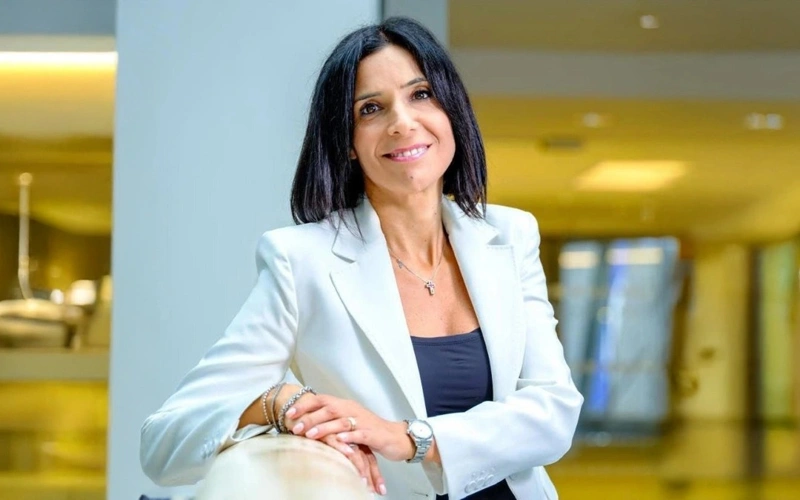Kazakhstan and the EU share strong values – Giuseppina Princi on a decade of partnership and growing cooperation
Marking the tenth anniversary of the Enhanced Partnership and Cooperation Agreement between Kazakhstan and the European Union, Head of the European Parliament Delegation for the Central Asian countries Giuseppina Princi commended the accord’s role in deepening political dialogue and expanding economic ties. In an exclusive interview with Kazinform News Agency, Princi underscored the agreement’s contribution to fostering mutual trust, sustainable development, and regional stability, while emphasizing the importance of shared values and continued parliamentary cooperation between the two partners.

– Mrs. Princi, this year marks the 10th anniversary of the Enhanced Partnership and Cooperation Agreement between Kazakhstan and the EU. How do you assess the current political and economic interaction, and parliamentary cooperation between the two sides?
– I warmly welcome the tenth anniversary of the Enhanced Partnership and Cooperation Agreement between the European Union and Kazakhstan, which represents a fundamental pillar of bilateral relations between the two parties. This agreement has helped to consolidate a framework of open, transparent, and constructive political dialogue, enabling joint efforts to address highly relevant issues such as sustainable development, regional security, combating climate change, and promoting fair and responsible trade.
Economic cooperation has developed significantly, creating opportunities for investment, technological exchange, and shared growth. The European Parliament also emphasizes the importance of parliamentary cooperation, which has proven to be a crucial instrument for facilitating direct dialogue between elected representatives, promoting mutual understanding, and exchanging best democratic practices.
However, it is essential that this cooperation continue to be based on shared values such as the protection of human rights, transparency, and the fight against corruption. Only through constant dialogue and a joint commitment to these principles will it be possible to further strengthen relations and contribute to building a future of prosperity and stability in EU–Kazakhstan relations.
– What would you say about Kazakhstan's political and constitutional reforms? How do you assess the country’s plans to transition to a unicameral parliament in 2027?
– The proposal to transition to a unicameral parliament represents a significant step in Kazakhstan’s political modernization process. However, it is fundamental that this change take place through an inclusive and transparent dialogue, involving all stakeholders and ensuring that the reforms genuinely strengthen democracy, representation, and human rights.
The European Parliament observes with close attention and interest the political and constitutional reform processes underway in Kazakhstan, recognizing that these changes represent an important opportunity to reinforce the country’s democratic institutions and enhance citizens’ political participation.
In particular, the proposed transition to a unicameral parliament in 2027 deserves careful evaluation, considering the profound impact this structural change may have on the balance of powers and democratic representation. It is essential that such reform be implemented in an inclusive, transparent, and participatory manner, involving not only political representatives but also civil society, opposition groups, and citizens.
It is equally important that any institutional change be accompanied by concrete measures to strengthen the rule of law, guarantee the independence of the judiciary, and fully protect human rights and fundamental freedoms. Transparency in decision-making processes and the fight against corruption are vital elements for ensuring a robust and credible democracy.
– On October 25, Kazakhstan will celebrate the 35th anniversary of the Declaration of Sovereignty. What would you wish the people of Kazakhstan on this day?
– On the occasion of the 35th anniversary of Kazakhstan’s Declaration of Sovereignty, I wish to extend my heartfelt congratulations and best wishes to the Kazakh people. This commemoration represents a solemn moment of reflection on the nation’s journey toward self-determination, state-building, and the advancement of democratic sovereignty.
The European Parliament hopes that Kazakhstan will continue to strengthen its democratic institutions, always placing at the core of its political agenda respect for human rights, protection of fundamental freedoms, and the promotion of active citizen participation in public life. It is essential that the path toward a more open and transparent society be accompanied by a constant commitment to combating all forms of intolerance, thereby safeguarding greater freedom and inclusivity.
Moreover, the European Parliament encourages Kazakhstan to deepen international and regional cooperation, recognizing the value of its partnership with the European Union as a driver of sustainable development, social progress, stability, and full respect for the values of democracy, solidarity, and the rule of law.
Earlier, Kazakh Foreign Minister Yermek Kosherbayev met with EU Ambassador Aleška Simkić to discuss prospects for advancing Kazakhstan–EU cooperation and strengthening interregional connectivity within the “Central Asia–EU” format. Kosherbayev emphasized the high level of political dialogue and the importance of consistently implementing the Enhanced Partnership and Cooperation Agreement, signed ten years ago.
